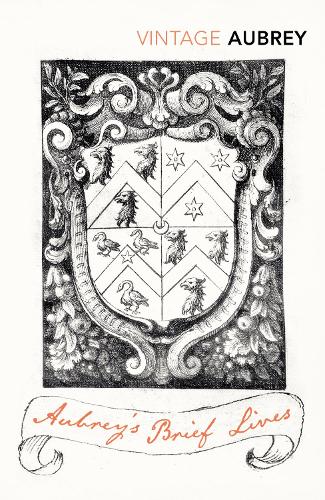
Aubrey's Brief Lives
(Paperback)
Publishing Details
Aubrey's Brief Lives
By (Author) John Aubrey
Edited by Oliver Lawson Dick
Vintage Publishing
Vintage Classics
7th April 2016
7th April 2016
United Kingdom
Classifications
General
Non Fiction
Biography: historical, political and military
Collected biographies
942.0550922
Physical Properties
Paperback
560
Width 129mm, Height 198mm, Spine 33mm
383g
Description
The ground-breaking book that invented modern biography - elegant, vivid and deeply entertaining WITH AN INTRODUCTION BY RUTH SCURR John Aubrey was a modest man, a self-styled antiquarian and the man who invented modern biography. His 'lives' of the prominent figures of his generation and the Elizabethan era, including Shakespeare, Milton and Sir Walter Raleigh, have been plundered by historians for centuries for their frankness and fascinating detail. Collected here are all of Aubrey's biographical writings, a series of unforgettable portraits of the characters of his day, still more alive and kicking than in any conventional work of history.
Reviews
I love John Aubrey's Brief Lives because they are funny - full of gaps, anecdotes and profundities all mixed up, as lives are -- Rosemary Hill * Guardian *
I was hooked. Rapier-sharp, elegantly phrased, and without a dull or wasted word -- Christina Hardyment * Independent *
You can almost smell and taste 17th-century England -- Tim Flannery * Guardian *
These arent po-faced accounts: the joy of Brief Lives is its irreverence... [Aubrey] never kept a diary or account of his days and so the biographer Ruth Scurr, who has written the introduction to this new edition, wrote one for him. John Aubrey: My Own Life was published last year; read the books side-by-side * The Times *
These vivid and entertaining sketches justify Ruth Scurr's claim that Aubrey was "one of the finest English prose-writers there has ever been" * Scotsman *
Author Bio
Born 12th March 1626 in Wiltshire, antiquary and biographer John Aubrey was the eldest surviving son of an affluent family. Having experienced a lonely childhood he later immersed himself in society, associating with many of the most distinguished figures of his time. He documented their lives in unique accounts, contained in manuscripts which were deposited in the Ashmolean Museum by the antiquary Anthony Wood in 1693. He had a keen interest in archaeology and is credited with a number of significant discoveries in Britain, including the ruins of Avebury, and the ring of chalk pits at Stonehenge which bear his name. He died 7th June 1697 and is buried in the churchyard of St Mary Magdalen in Oxford.
